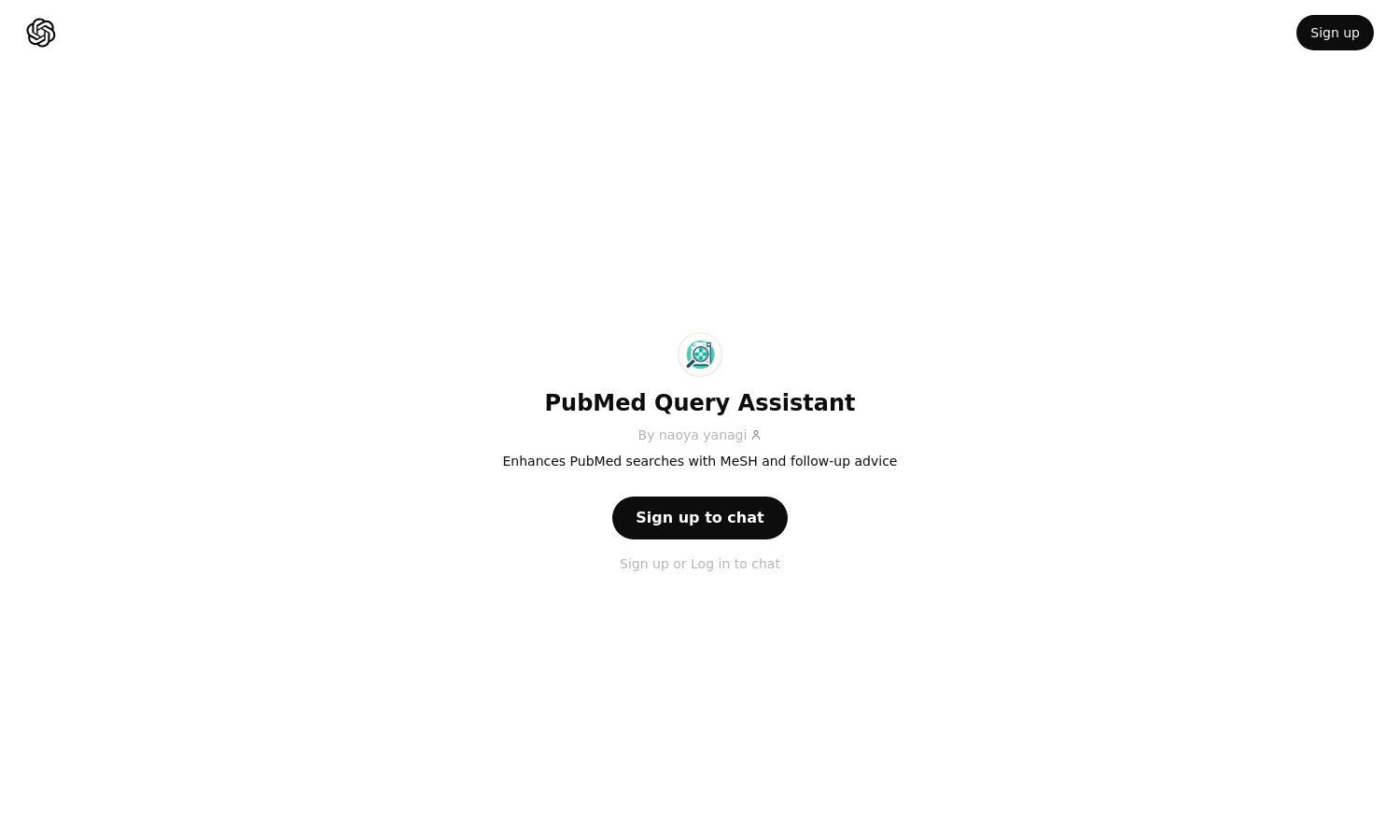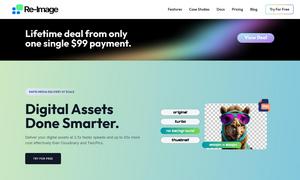ChatGPT - PubMed Query Assistant

About ChatGPT - PubMed Query Assistant
ChatGPT - PubMed Query Assistant revolutionizes research by streamlining PubMed queries with MeSH terms. Designed for students, researchers, and medical professionals, this innovative tool enhances search precision and usability. Users benefit from effective results and personalized advice, making literature searches easier and more productive.
ChatGPT - PubMed Query Assistant offers a free basic plan, ideal for casual users. For advanced features and in-depth support, users can opt for a premium subscription. Enjoy exclusive tools and insights, enhancing research capabilities while ensuring value with each tier, tailored to diverse user needs.
The user interface of ChatGPT - PubMed Query Assistant is intuitively designed for seamless navigation. Its clean layout facilitates easy access to features, enhancing the browsing experience. Unique elements like personalized search advice and integrated MeSH recommendations ensure users find relevant information effortlessly.
How ChatGPT - PubMed Query Assistant works
Users begin their journey with ChatGPT - PubMed Query Assistant by signing up, where they receive guidance on how to maximize their research capabilities. After onboarding, they navigate the platform's intuitive interface, inputting queries or selecting from MeSH terms for precise searches. The assistant then responds with relevant articles and tailored advice, simplifying the entire research process.
Key Features for ChatGPT - PubMed Query Assistant
Enhanced MeSH Search Integration
The enhanced MeSH search integration is a standout feature of ChatGPT - PubMed Query Assistant. This functionality allows users to easily search using Medical Subject Headings, ensuring that they receive the most relevant articles and studies for their research queries, enhancing overall search precision.
Personalized Follow-up Recommendations
ChatGPT - PubMed Query Assistant provides personalized follow-up recommendations based on user queries. This feature helps users identify additional resources and studies relevant to their initial searches, guiding them through the research process and enriching their understanding of complex medical topics.
User-Friendly Interface Design
The user-friendly interface design of ChatGPT - PubMed Query Assistant enhances user experience significantly. The clean, navigable layout promotes easy access to features, while the streamlined flow of information allows users to focus on finding quality research without unnecessary distractions.








